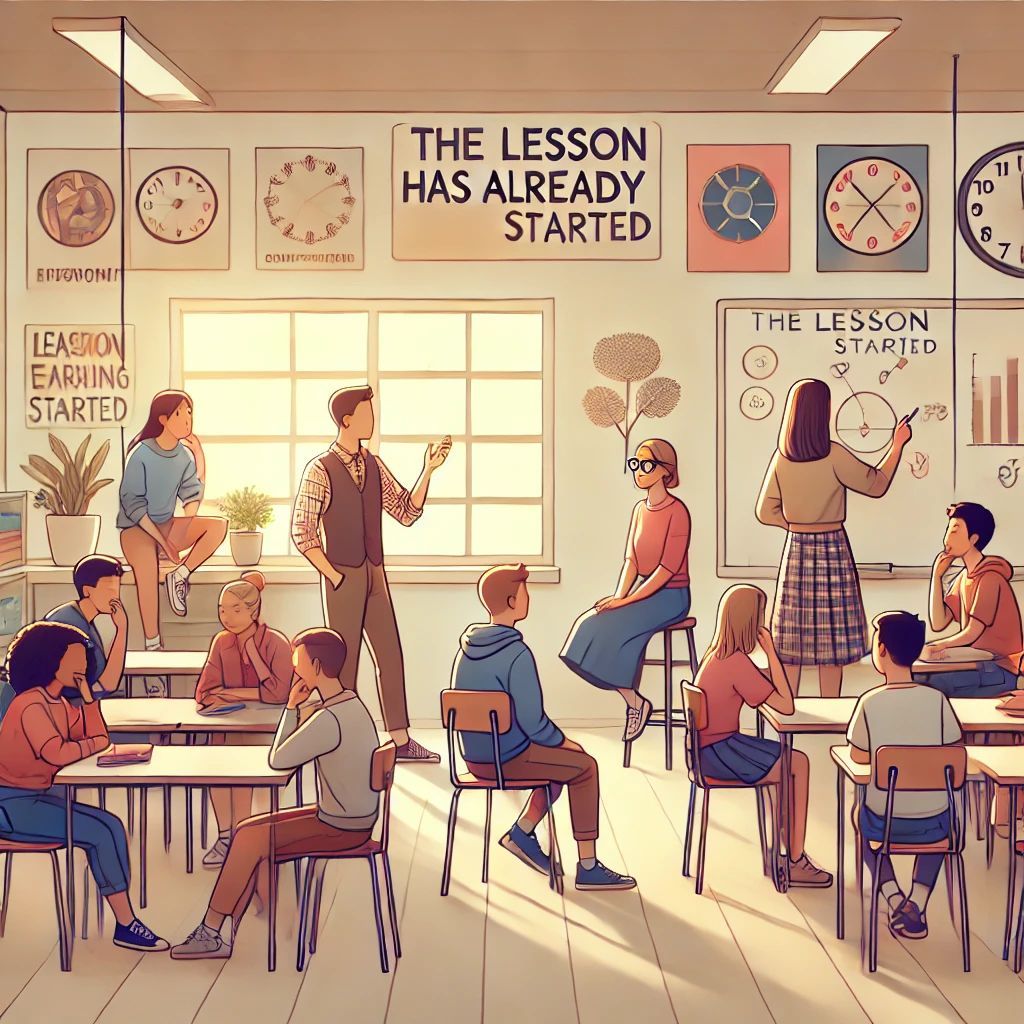Rethinking Professional References: Why It's Time to Move Beyond Outdated Practices

The traditional practice of employers seeking professional references for prospective employees remains surprisingly entrenched in modern hiring processes. Despite the dramatic shifts in the workplace landscape, many employers still rely on collecting references from past managers to gauge a candidate’s suitability. This insistence often overlooks the complexities of why people leave their jobs and how they grow over time. It’s time to ask ourselves: are these references really offering the insights we need, or are they simply a relic of a time when career paths were more linear and simple?
The Problems with Traditional References
Professional references are intended to provide a window into a candidate’s past performance, offering insights that might not surface in an interview or résumé. Yet, this process is deeply flawed, particularly in an era where the reasons people leave jobs are more complex and varied than ever. Here are some key issues with relying on references from past employers:
1. Biased Perspectives: The most glaring problem with this approach is that the reference typically comes from a previous manager, whose perception of the employee may be coloured by their own biases or personal dynamics. It’s not uncommon for employees to leave jobs due to conflicts or mismatches with their direct supervisors. In such cases, a reference from a disgruntled or disappointed manager may not reflect the full story of the employee's performance or potential.
2. A Snapshot in Time: References often reflect who the candidate was at a specific moment in their career, rather than who they are now. People grow, develop new skills, and evolve in their professional journey. A reference from three years ago might not accurately capture a candidate’s current capabilities or readiness for a new role. This static view of a candidate fails to recognise that personal and professional growth is a continuous process.
3. Punishing Imperfection: In my experience working with educational institutions and business clients, I’ve seen how a candidate’s career progression is rarely straightforward. People make mistakes, face challenges, and sometimes struggle under particular managers or in certain environments. However, these experiences often lead to growth and improvement. Yet, the reference-checking process tends to focus on past struggles rather than the lessons learned or the resilience demonstrated afterward.
4. Ignoring the Reasons for Leaving: Statistics show that a significant number of employees leave their jobs because of dissatisfaction with their managers or work environment. Gallup’s research, for example, indicates that nearly 50% of employees have left a job to get away from a bad manager. Despite this, companies continue to seek references from those very managers, asking for feedback on the same employees who might have departed due to dissatisfaction. This creates a disconnect between the intent of reference-checking and the reality of why people transition between jobs.
A Call for Modernising the Hiring Process
Given the limitations of traditional references, it’s worth questioning why employers continue to cling to them. The answer likely lies in habit and familiarity. For decades, collecting references has been standard practice, a box to tick off during the hiring process. But if we look deeper, there’s a clear need for change. Here are a few reasons why it’s time to rethink this approach:
1. Ask the Right Questions During Interviews: A well-conducted interview should provide more valuable insights than a conversation with a past manager. Instead of relying on references, interviewers can focus on asking targeted questions that reveal how candidates handle challenges, adapt to change, and grow from setbacks. For example:
- “Can you describe a time when you faced a conflict at work? How did you handle it?”
- “What are some of the key lessons you’ve learned in your career that have shaped your approach to work?”
- “How have you grown professionally since leaving your last position?”
Such questions allow candidates to share their journey in their own words, providing a fuller picture of their experience and growth, which a static reference might miss.
2. Focus on Skills and Attributes Gained: Rather than revisiting a candidate’s past through the lens of a previous employer, it’s more relevant to assess the skills, competencies, and attributes they have gained over time. Skills assessments, behavioural interviews, and even practical problem-solving exercises can give a better understanding of what a candidate is capable of today.
3. Peer References and 360-Degree Feedback: If references are necessary, consider diversifying the sources. Seeking feedback from peers, subordinates, or clients can provide a more balanced view of a candidate’s abilities. This 360-degree approach can capture the nuances of how a candidate collaborates with others, leads teams, and engages with stakeholders.
4. Reflecting on Our Own Journeys: Most of us have faced periods in our careers when we weren’t at our best—times when we might have struggled under challenging conditions or found ourselves in roles that weren’t a good fit. Yet, these experiences often spur growth and self-improvement. As employers and recruiters, we should acknowledge that people are rarely the same person they were three or five years ago. If we knew better then, wouldn’t we all have done better?
This mindset shift can transform hiring practices. Instead of viewing candidates through the narrow lens of their past mistakes or disagreements with managers, we can focus on their trajectory—how they have overcome challenges, the skills they have acquired, and the mindset they bring to their next role.
Why It’s Time for Change
The traditional approach to reference checking is a holdover from a time when careers were more static and linear. Today, people change jobs more frequently, develop new skills through diverse experiences, and adapt to different work cultures throughout their careers. A 2020 study by the U.S. Bureau of Labor Statistics found that the average worker holds 12 jobs throughout their career, with many of those changes driven by the search for better opportunities or improved work-life balance. In this context, clinging to a reference from a manager two or three roles ago seems out of touch with the realities of the modern workforce.
Moreover, the COVID-19 pandemic has reshaped the employment landscape, forcing many professionals to pivot their skills, adapt to remote work, or even change industries entirely. It’s not uncommon for someone’s skills and attributes to have transformed significantly over the past few years. In this environment, the reliance on past references seems increasingly irrelevant.
Practical Steps for Employers to Move Forward
1. Replace References with Behavioural Assessments: Use structured behavioural assessments that simulate job tasks or challenges. This allows candidates to demonstrate their capabilities in a controlled setting, providing insights that are more relevant to their potential fit for the new role.
2. Conduct Stay Interviews and Exit Surveys: To better understand why people leave roles or stay within organisations, conduct stay interviews with current employees and exit surveys with departing ones. This can provide a deeper understanding of the dynamics that lead to employee turnover and help inform more meaningful questions during hiring.
3. Prioritise Growth Mindsets in Hiring: Look for evidence of continuous learning and adaptability. Candidates who can articulate how they have developed new skills, embraced feedback, and adjusted their approach to challenges are likely to be more successful in dynamic environments.
A New Era of Hiring: Trusting the Journey
The outdated practice of collecting traditional references fails to recognise that people’s journeys are rarely straightforward. By clinging to this approach, employers risk missing out on great talent—those who have learned from their past and are ready to bring their new insights and skills to the table. As we move forward, let’s embrace hiring practices that respect the complexity of modern career paths, focus on where candidates are going rather than where they have been, and recognise that everyone’s story is a blend of success, struggle, and growth.
It’s time for employers to ask themselves: What are we really looking for in a candidate, and how can we find it in a way that reflects today’s reality? By shifting our focus from outdated reference checks to meaningful conversations and skill-based assessments, we can make better-informed decisions that benefit both candidates and organisations.
Take Action for a Better Hiring Process
Your thoughts and experiences are vital in shaping the future of recruitment. If this topic resonated with you, I encourage you to share your insights in the comments below—whether you agree, disagree, or have a different perspective, I’d love to hear from you! Let’s challenge the status quo of hiring practices together.
If you found this discussion valuable, share it with your network to help spark a broader conversation. Follow me for more insights into recruitment, leadership, and the evolving workplace.
Are you ready to adopt a more thoughtful approach to hiring in your organisation? Let’s discuss how we can work together to create a process that respects the growth and potential of every candidate. Contact me directly at carl@winfordinternational.online to start the conversation. Together, we can build a recruitment strategy that embraces the future of work and recognises that everyone’s journey is unique.














































































































